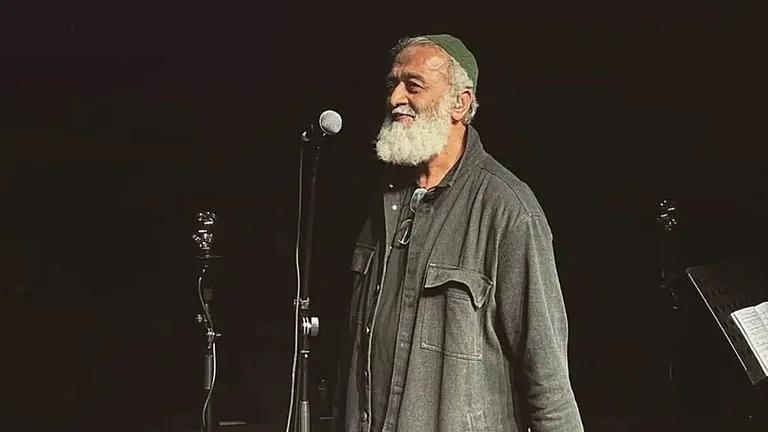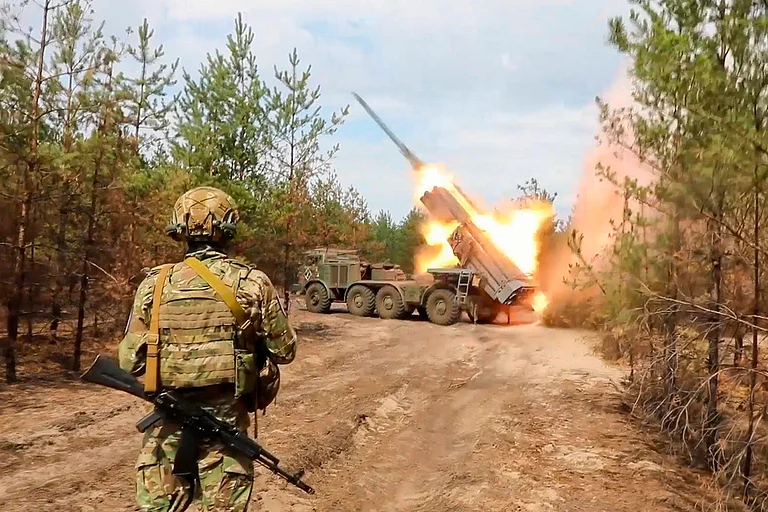The Vajpayee government may be pushing ahead with disinvestment in Indian Airlines (IA), but that doesn't worry the prickly staff of the national carrier. Confident that nothing can be done by a caretaker government, all the seven IA unions have generously postponed - their strike till the new government is formed. Which means calendar 1999 is safe for flying IA.
The IA staff are just part of the two lakh workers who are under the Damocles' sword of disinvestment and restructuring, a threat which has now receded by six months. The government had worked out a voluntary retirement scheme for 30 psus proposed for disinvestment/joint ventures which would affect 20,000-30,000 workers. All these jobs too are safe for now.
But disinvestment is not the only thing that will be hanging fire for the rest of '99. Says a bank ceo: 'This political hiatus will definitely affect all mega projects, including plans for psus and the insurance sector. At a rough count, at least Rs 10,000 crore worth of projects will now be delayed resulting in an even greater loss in terms of time and opportunity for subsidiary projects.'
To start with, Air-India's ambitious fleet expansion plan may not fructify. According to civil aviation minister Ananth Kumar, an expert committee was to offer its proposal on May 15, specifying the number of aircraft required. The airline was to then negotiate the price with manufacturers and make the final choice by June 15. Explains a Mumbai-based aviation analyst: 'Air-India's fleet expansion was planned over four years ago but the ministry and the board have yet to decide on the number of aircraft needed. The initial plan to acquire 26 mclr (medium capacity long range) aircraft has changed twice. Even if the airline takes a decision today, it will take over a month to place orders. Of course, considering its caretaker status, no one is going to deal with the present administration seriously.'
Tourism, for one, has been among the first sectors to be hit by the political situation. Earnings in this sector have plumbed new depths in a period declared Explore India Year. Says Subhash Goyal, president of the Indian Association of Tour Operators: 'The tempo had built up for 'Explore India'. Most of the post-Pokhran sanctions had been lifted. Business travellers had started coming in. But with the elections announced suddenly, quite a few business delegations have shelved their travel plans. We did a sample check the other day and found that over 100 tours have been either cancelled or postponed. With elections scheduled for September, things can only worsen. Foreign exchange earning from tourism was Rs 11,744 crore in calendar 1998. But in February 1999, earnings plummeted to $1.4 million (Rs 5.9 crore). And that was before the political upheaval.' Meanwhile, the Tourism Promotion Bill languishes in limbo along with a host of others.
Former British high commissioner to India and currently vice-chairman of Barclays Capital, Sir Robert Wade-Gery, said in London recently that the delay in passing the Insurance Bill is the biggest setback to investment. Agrees Narendra Nagpal, head of research, uti Securities Exchange: 'If Parliament had passed the Insurance Bill even with a caveat of 26 per cent foreign equity, it would have attracted a host of new investments.' Another bill that failed to make the grade is The Cigarettes (Regulation of Production, Supply & Distribution) Bill. The victim: Rothmans of Pall Mall International, with plans of investing $150 million (Rs 600 crore) in a 100 per cent Indian subsidiary. The other cigarette major cooling its heels is Philip Morris, which too had been planning a fully-owned subsidiary.
Oil exploration companies are in a fix too. The bids made under the New Exploration Licensing Policy, '99, were to be opened last week. 'Even if they do open the bids, companies like Shell Oil, Indian Oil, ongc, Chevron and Cairn Energy will find it difficult to proceed until the new government is in place,' says a senior executive with a public sector oil major. If, anxious about political developments, Kuwait Petroleum Corporation delays confirming its participation in the Rs 8,000-crore Eastern India refinery joint venture with Indian Oil, the project may be ready only in 2003. The refinery, to come up in Orissa, had been sanctioned in July '98 and was to be completed in 2002.
Yet another victim is Petronet lng of the US with its proposed $1 billion projects at Dahen and Kochi for import of 7.5 million tonnes of liquefied natural gas a year. With the government yet to finalise its equity pattern, Petronet - which is pumping in Rs 1,200 crore - won't be able to attain financial closure by June and could delay the two projects by a year beyond the target of 2002. ntpc, which has forced a change in the equity pattern by asking for a bigger stake, is yet to confirm acceptance. As a result, Petronet won't be able to sign the supply purchase agreement with the Rasgas-Mobil Consortium.
The political turmoil has also pushed the telecom policy on to the backburner. And with it, the entry of mtnl into cellular phone services, much to the delight of private operators. Apart from the Ispat group's dth project, the financial closure of Hughes Ispat - the telecom joint venture with Hughes Corporation of the US - has been affected because, as a Hughes Ispat official says, 'the institutions are not willing to fund a telecom project till the policy is clear'. Hughes has invested $150 million in capital expenditure and $100 million in licence fee and is among the few private basic telecom majors to have invested over Rs 1,000 crore in the sector.
In other sectors, too, many ventures have been postponed though not only on account of the political crisis. Bayer India and US chemicals major Rohm & Haas have put off their 50:50 joint venture to manufacture fungicides as they feel the market is not ready. Fiat India has also postponed its Rs 300 crore investment near Pune. While the sluggishness in the Indian car market is touted as the main reason, in reality the Italian major has put all its plans on hold till the elections. Marks & Spencer, the British superstore chain, has received fipb approval but prefers to wait till the political dust settles.
These are just a few of the direct economic losses of a caretaker government being forced to run the country for four months. But there are many more intangible losses. The impact on Indian private borrowing, for instance. Latest Indian offerings are attracting a high spread of between 275 and the 375 basis points above libor which Dabhol Power Corporation had to pay recently, compared to 150 basis points that idbi and ntpc got in March. The sudden rise in risk premia for Indian external commercial borrowings (ecbs) has nalco and gail scouting for other sources to raise loans of $350 million and $300 million respectively. Says the treasury head of a foreign bank: 'To be honest, most foreign banks are trying to cut down their exposure towards Indian ecbs. Apart from the higher risk on account of political crisis, we are also jittery about the currency fluctuation.'
The currency and the stock markets have ignored the crisis so far, more because the flow of US capital to the emerging markets has remained pretty high. The government has also been approving fdis liberally. The fipb cleared 38 proposals worth Rs 2,750 crore last week. But, warns Nagpal, 'It remains to be seen how many of these will translate into inflows before the next government takes over.'
Still, the private sector is going ahead. Recent studies do indicate a reversal of mood and lifting of business confidence. Says D.K. Bhatia, head of research, Mega Ace Consultancy: 'Mega projects and psus might suffer, but I think the private sector as a whole has discounted the political upheavals. Despite elections, the country is all set for economic growth that may yet surprise many.'
Famous last words?


























